Results
Once the final results were in, and the screenshots were verified, the Romanian team came away as the eventual winner thanks to some excellent overclocking and a good CPU and GPU combination. The guys in the Romanian team bagged themselves a whole bunch of hardware and a cheque for $1,500, and celebrated by throwing LN2 over each other, which earned them a swift telling off from the head judge. Second place went to the popular Greek team, who also came away with a stack of hardware and a cash prize. The final step on the figurative podium went to the Russians.Rounding out the top five and the qualifying places were the seeded Swedish team and the highly rated Germans. Both teams will get a berth at the world finals in Taiwan in September, although we’re sure they’ll want to come away better than fourth and fifth when the autumn rolls around.
The UK team ended up in a rather sorry-looking 15th place, which was a bitterly disappointing blow to the chaps. We can only imagine how frustrating it must be to spend two days continually attempting to overclock an uncooperative CPU - we get annoyed after around an hour down in our labs. The team remained in good spirits, though, despite knowing that they’d be flying back to the UK to receive a ribbing on their team’s forum.
Final Thoughts
We really enjoyed our time at the event, and it’s good to see large hardware vendors and manufacturers getting behind enthusiasts and overclockers in such a big way. It’s a reciprocal relationship too, as MSI gets the benefit of having a number of the best overclockers in the world testing and giving feedback on their boards and graphics cards. Jason Lee, global marketing manager for MSI, explained to us that it’s this feedback that will help MSI make MOA bigger and better in years to come. He also pointed out that MSI flies over a number of engineers from Taiwan for each event, so that it can actively see how people use (and abuse) its products first hand.We were left a little bemused by MSI’s choice of hardware for the competition, however, as it’s clear that LGA1155 CPUs don’t really benefit from sub-zero cooling. The chips run so cool and efficiently that you can get most to their limit with a good air-cooler and a little perseverance; chilling the chip down further isn’t going to make any difference if it’s hitting a mechanical rather than thermal barrier. Every team we spoke to would have rather used LGA1366 processors and motherboards.
Contestants also bemoaned the variability of Sandy Bridge CPUs; the processors at the competition had maximum frequencies between 5GHz and 5.6GHz, which is a massive discrepancy. This is, of course, just the nature of overclocking - your mileage may vary. However, it raises questions about how much of the result is down to personal skill and talent, and how much of it is down to the hardware lottery. You can’t help thinking that some teams' fates are sealed as soon as they’ve picked their hardware.
This is why one of the hot topics in the post competition Q&A session was how far the tournament organisers should go to speed-bin the CPUs and GPUs used in these kinds of competitions. Of course, competitors would like a level playing field, with all components binned to run at roughly the same speed. It’s a balancing act, though, as this kind of testing requires a lot of time.
Still, a good time was had by all, including those who came away with less than they’d hoped for, and it's great to see MSI putting on such an event. We would also like to wish the five qualifying European teams the best of luck at the finals over in Taiwan.

MSI MPG Velox 100R Chassis Review
October 14 2021 | 15:04


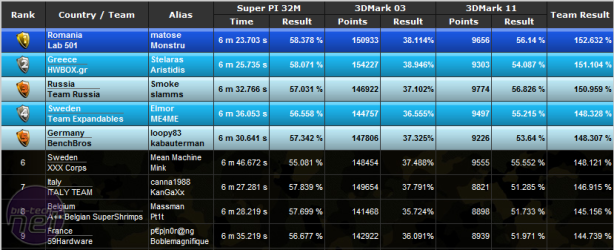
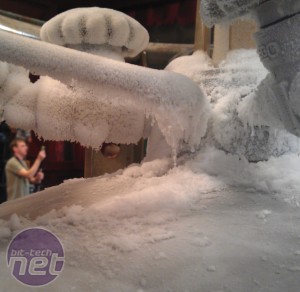
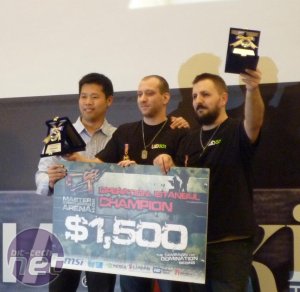
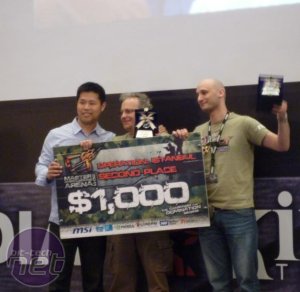
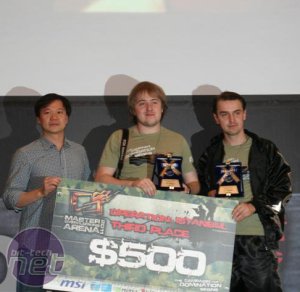







Want to comment? Please log in.